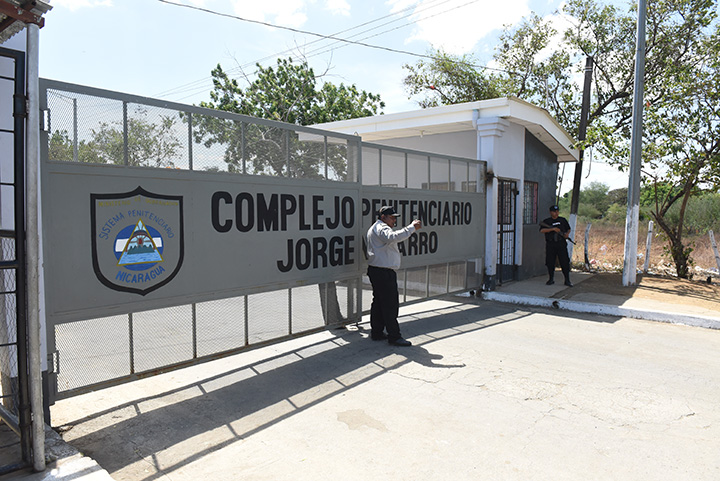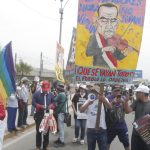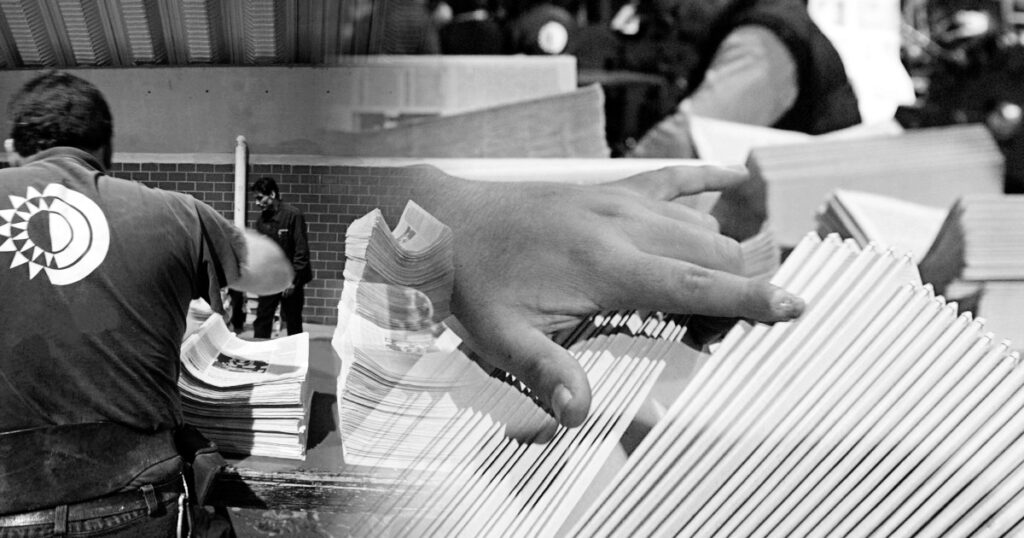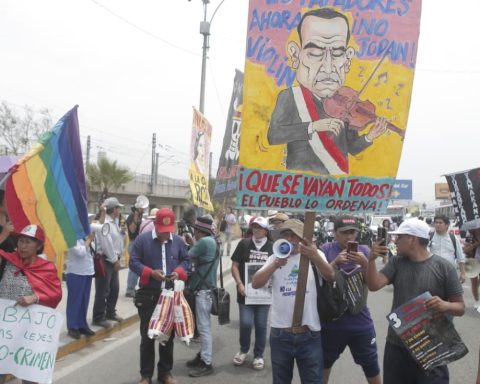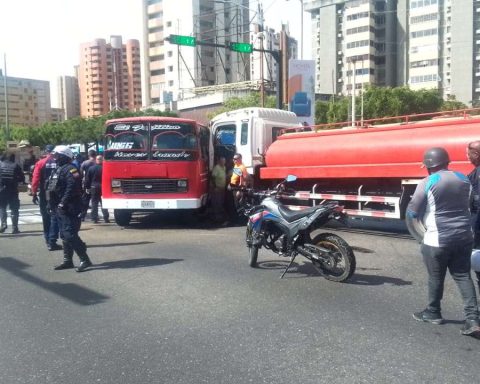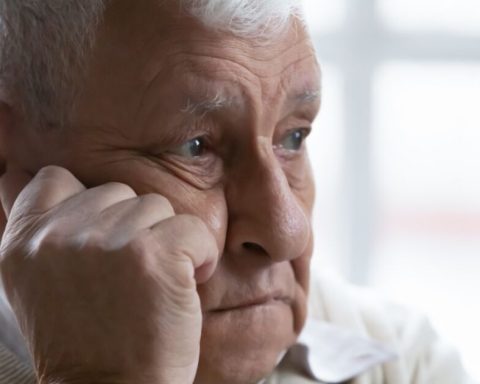They say that it has a plan to prevent the entry of drugs; with education programs in values and respect; extensive technical courses in crafts and various Zumba sessions; in addition to a newly opened dental clinic. The count seems to be from a first world prison system and where the prisoners live happy days.
Another piece of information: 102,578 sun activities have been carried out, including educational talks in recent months. Read this way, the country’s National Penitentiary System should be a reason for envy in the region. “But now all that is only on paper, none of that exists,” said a source from a prison. On the contrary, other voices add that the country’s penal centers violate various articles of the Penitentiary Regime Law and the Sentence Execution Law.
An investigation carried out for this report indicates that since 2018 the few non-state spaces and programs that intervened in the re-educational and re-socializing treatment of prisoners in Nicaragua were closed. The integration into artistic, religious, sports and other activities is now at the complete will of the General Directorate of the National Penitentiary System, in the hands of the Ministry of the Interior (Migob), an entity controlled by the Executive of Daniel Ortega and his wife Rosario Murillo .
Related news: The Vatican urges the “sincere search for peace” to overcome the crisis in Nicaragua
“Eugenio”, whom we will call that for his safety, is a communicator who worked with organizations that visited prisons. He recalls that, until October 2018, as part of the social reintegration model throughout the territory, students in their last years of various university degrees carried out some volunteer work in the prisons of Tipitapa, Bluefields, Chinandega, Estelí, Matagalpa, León and Juigalpa.
At that time, the Sandinista administration registered a total prison population of 20,918 people (including pretrial detainees), a rate of 332 citizens in prison for every 100,000 inhabitants of the national population.
«Vocational activities, history or mathematics courses, and even language and literature. The will of many before the 2018 crisis was to contribute through programs such as the University Pastoral Center of the Central American University (UCA), or the International Red Cross,” said Eugenio. Now all education programs, psychological talks and training are designed and managed by Migob.
“All these projects were cut off by the Sandinista administration because there is no longer confidence that other entities will enter the country’s prisons, since they fear that violations of the human rights of people detained in the prison system will be documented. After the Police, the National Assembly and the Judiciary, the Penitentiary System is a key piece within the official apparatus,” said a source linked to the armed forces and Migob, who requested “complete” anonymity to answer the questions.
Overcrowding and other human rights violations
In recent years, civil society organizations, independent media and entities such as the Nicaraguan Center for Human Rights (CENIDH) have denounced overcrowding in several prisons, release orders not carried out, violations of human and constitutional rights that are lost after the conviction and imprisonment of common criminals without reasonable justifications.
«Prison activity is based on the recognition of the dignity of the person and respect for human rights. In no case, inmates will be subjected to torture, cruel, inhuman or degrading treatment”, states Article 05 of Law No. 473, Law of the Penitentiary Regime of Nicaragua.
“It is clear that now in prisons this principle is not respected, and neither is Article 06 or 104,” the state source stressed. This last paragraph cites that “fulfillment of the objective of the execution of the sentence and social rehabilitation of the inmate is based on the progressive system in its different phases.”
For “Alexandra”, a psychologist and human rights defender consulted for this and other reports, in the case of Nicaragua -as in Honduras, El Salvador and Guatemala- a profound reform and updating of said rehabilitation phases is necessary, “That goes through an analysis of human resources, and the conditions inside and outside the prisons”, until ending in a new administrative model “that sees something more than the crime that the person committed.”
As part of the Plan “My Life Without Drugs, Peace and Future”, the National Penitentiary System tries to eradicate the consumption and sale of narcotics in the prison population. “But the social fabric and Nicaraguan institutions are so damaged that legal psychology is not even taken into account in the processes that are still pending,” said the specialist.
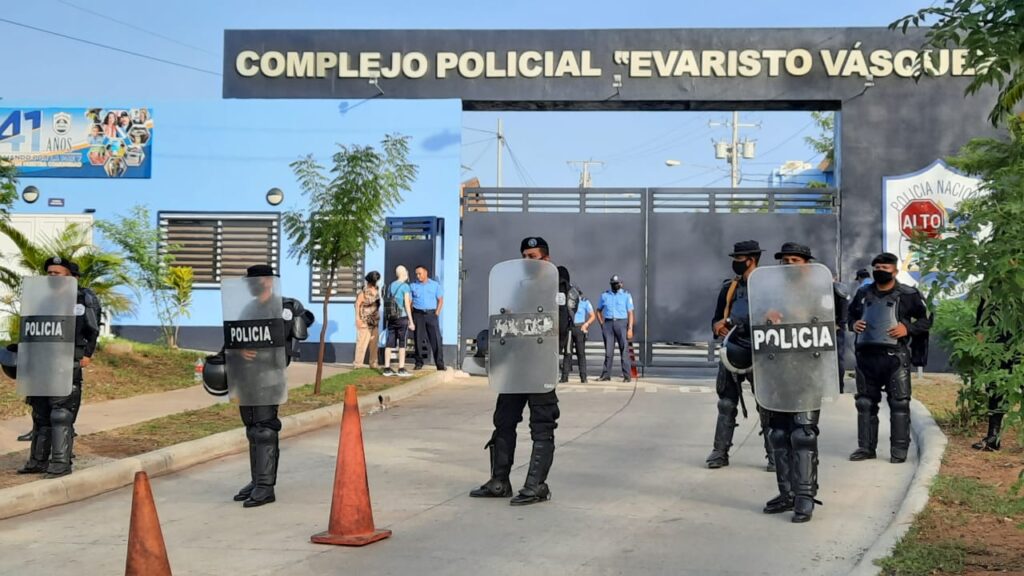
While it is true, prison alone can have a deterrent effect. However, state work should not focus only on the punitive part. “In these situations, not only one element can be seen,” commented the psychologist, who also underscores the importance of using international standards in the early release of common criminals and in probation or family coexistence processes. “Non-recidivism will depend a lot on that work prior to release,” she added.
However, in the case of releases before full completion of the sentence, the patterns and norms that the Nicaraguan justice system has been considering for several years are unknown.
Between 2014 and 2022, the Ortega-Murillo administration released 38,540 prisoners from prison, for an annual average of 4,282 parole orders decreed directly by the Executive, according to official data. However, since the year 2000, the prison population has been increasing.
“The prerogatives within prisons are decisions at the will of the prison management. They are not taken based on scientific knowledge because there is no genuine interest in reducing violence, crime, and recidivism in Nicaragua,” said the Migob source.
Less positive effects on society
The increase in citizen violence throughout the territory; robberies, fraud, assaults, rapes and homicides -many of these crimes committed by people released in recent months- could be one of the effects of the inefficient model developed in Nicaragua.
According to verified data, at least four serious crimes (including one femicide) have been committed so far in 2023 by a person released in recent months by presidential order. “It is necessary to fight against the stigma attached to people convicted of a crime. Another sign of the need to restructure these processes and the social fabric”, Alexandra stated.
And although the plans, spaces, and programs involved in the re-educational and resocializing treatment of those deprived of liberty are unknown for sure, the increase in privileges and routine activities within Nicaraguan prisons for common hostages is evident.
So far in 2023, the following have been reported: 58,058 ordinary, conjugal and special visits; 16,136 phone calls; 38,472 specialized medical care; 9,903 prisoners integrated into prison work; 42,496 prisoners in sports and cultural activities; 2,262 judicial and medical proceedings; 9,169 package passes; 253 public servants in training; 4,323 purchasing activities (not detailed); 12,670 detainees in education programs (not specified); 5,081 interviews with prisoners; 553 interviews with relatives of detainees; 24 psychological talks; and 98 requisitions.
The last public diagnosis of prisons in Nicaragua was made by the then Inter-American Institute of Human Rights (IIDH) in 1996. At that time, as part of the justice scheme, the prison sector was understood as the last “link in the penal system.” .
Related news: Manuel Urbina Lara, the uncomfortable lawyer for the CSJ who became a political prisoner
“By it we understand that set of rules, institutions and processes intended for the execution of sanctions, imposed by the competent authority against people who, after due process, are found guilty of committing a crime”, explains the report.
«In this way, the prison sector constitutes a crossroads of great importance between the criminal justice system and citizen protection. Poorly oriented or poorly endowed, it will continue to be a ‘school of crime’, and detainees who have served their sentences will constitute a significant threat to society. By being, instead, focused on the successful rehabilitation of the inmate, the community will be protected from danger », he adds.
«The work of prisons is no longer to reform. It is a challenge that this administration has not resolved,” said the state source.
By United Voices
